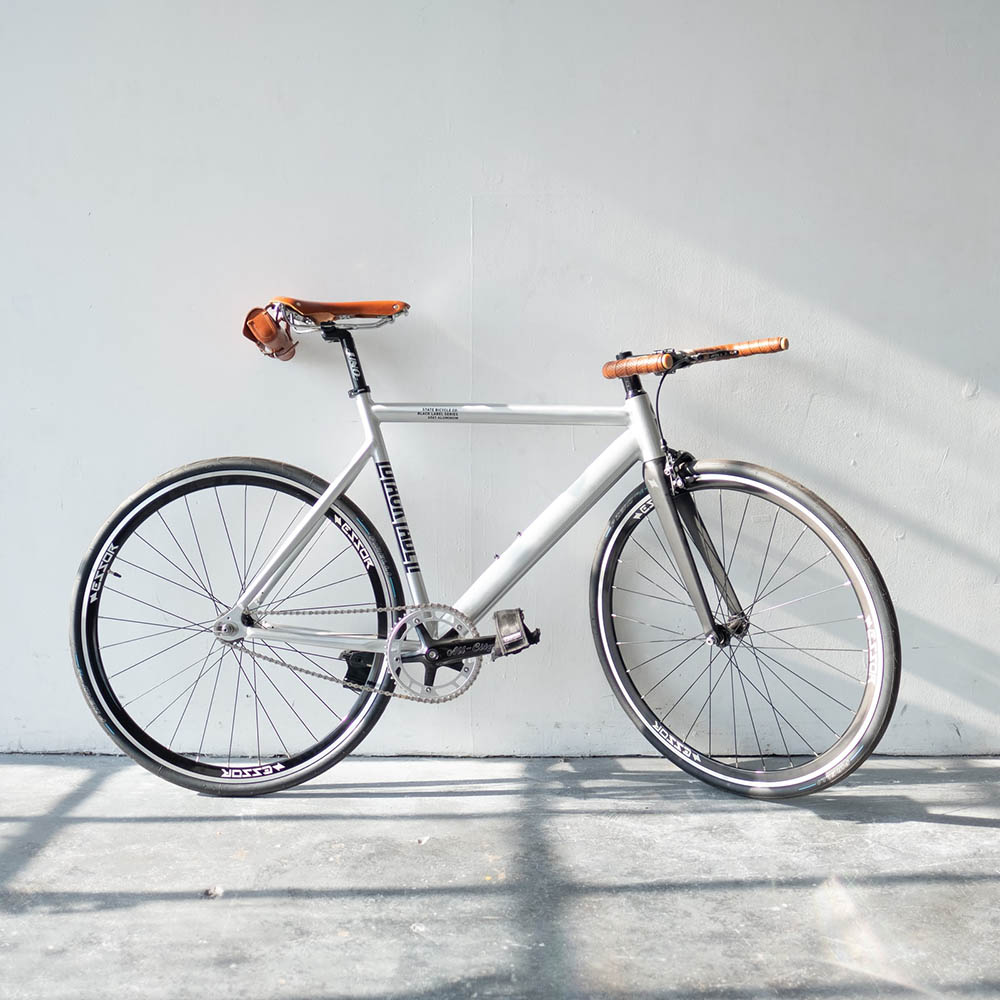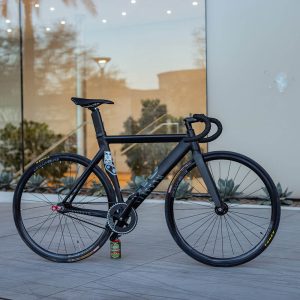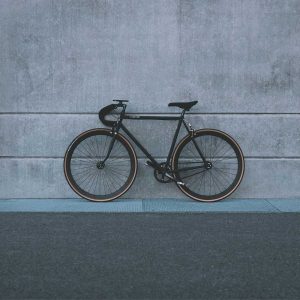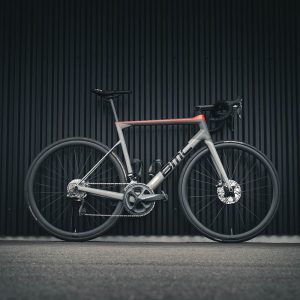My Experience with the Kryo X26 MTB – Model Z: Detailed Review and Impressions
Hello to all cycling enthusiasts and those just looking for their future two-wheeled friend! Today I want to share my thoughts and a detailed review of the bike that has become my reliable companion on many rides – the Kryo X26 MTB – Model Z. I must say right away that choosing a bike is a very individual matter, but perhaps my experience will help someone decide.
When I was looking for a versatile mountain bike suitable for both city cruising and light off-road trips, my choice fell on this particular model. Why? Let’s delve into the details.
1. First Acquaintance and Appearance
I remember the first time I saw the Kryo X26 MTB – Model Z. Let’s assume “Model Z” distinguishes itself with a special color – say, a deep metallic blue with bright yellow accents. It looked quite stylish and modern. The paint quality seemed decent at first glance, with no obvious defects.
The bike’s assembly also made a positive impression. All components were securely fastened, with nothing rattling. Of course, before the first ride, I still conducted a thorough inspection and tightened the main components – this is standard procedure for any new bike.
The overall design is classic for a hardtail mountain bike (with suspension only on the front wheel). A simple but time-tested construction.
2. Technical Specifications: What’s Under the Hood?
Let’s take a closer look at the key components of this model. It’s worth noting that the configuration might vary, but I will describe the one that was on “my” Model Z version.
Frame and Geometry
The frame is the heart of any bicycle. In my case, it was made of a steel alloy (Hi-Ten).
- Advantages of steel: Strength, durability, better dampening of small vibrations compared to aluminum.
- Disadvantages: Heavier weight. The bike felt quite heavy, especially when carrying it up stairs.
The frame geometry is classic for an MTB, providing a fairly comfortable, not too aggressive riding position, which is good for long rides.
Wheels and Tires
Wheels with a diameter of 26 inches. This is a classic size for MTBs, although 27.5″ and 29″ are becoming more popular now.
- Advantages of 26″ wheels: High maneuverability, faster acceleration, usually lower cost of components (tubes, tires). Ideal for shorter people or teenagers.
- Disadvantages: Overcome large obstacles (roots, rocks) less effectively compared to larger wheels, slightly less rolling efficiency on flat sections.
The rims were double-walled aluminum, adding strength. The tires were standard, with a universal tread pattern that gripped reasonably well on both asphalt and dry ground. The tire width (let’s assume 2.1 inches) provided sufficient stability.
Drivetrain and Shifting
Everything here is quite standard for the budget segment.
- Crankset: Three chainrings at the front.
- Cassette/Freewheel: 7 sprockets at the rear.
- Total number of speeds: 3×7 = 21 speeds.
- Components: Bikes like these often feature entry-level groupsets from Shimano (e.g., Tourney) or similar brands.
Shifting worked satisfactorily, although it sometimes required precise adjustment. For relaxed riding, the range of gears was quite sufficient to climb small hills and maintain a comfortable speed on flat sections.
Braking System
“My” Model Z was equipped with mechanical disc brakes.
- Advantages over rim brakes (V-brakes): Better performance in mud and rain, less dependent on the condition of the rim (trueness).
- Disadvantages compared to hydraulic brakes: Require more force on the lever, need periodic adjustment of the pad clearance.
The brakes did their job, providing adequate stopping power for my riding style. For aggressive riding or long descents, their effectiveness might not be sufficient, but for the city and park – quite enough.
Suspension and Comfort
The bike is equipped with a front suspension fork. Usually, this is a spring-elastomer fork with limited travel (e.g., 60-80 mm).
- Function: Softens impacts from potholes, curbs, tree roots, making the ride more comfortable.
- Limitations: Simple forks of this type lack fine-tuning adjustments (rebound, compression) and may be less effective on complex terrain compared to more expensive air forks.
The saddle was standard, medium firmness. For short trips, it was quite acceptable, but for longer rides (over an hour), I would recommend considering replacing it with a more ergonomic one or using cycling shorts with padding (“chamois”).
Table: Key Specifications (Example for Kryo X26 MTB – Model Z)
| Component | Specification (Approximate) | Notes |
|---|---|---|
| Frame | Steel Hi-Ten, size M (17″) | Strong but heavy |
| Fork | Spring-elastomer, 80mm travel | Basic suspension |
| Wheels | 26″, double-wall alloy rims | Maneuverable, strong |
| Tires | 26×2.1″, universal tread | For various surface types |
| Shifters | Shimano ST-EF (or similar), 3×7 | Combined with brake levers |
| Front Derail. | Shimano Tourney (or similar) | 3 speeds |
| Rear Derail. | Shimano Tourney (or similar) | 7 speeds |
| Brakes | Mechanical disc, 160mm rotors | More reliable than V-brakes in bad weather |
| Crankset | Steel, 42/34/24T (example) | Basic option |
| Cassette/Frwl | 14-28T (example) | Standard range for 7 speeds |
| Saddle | Standard MTB | May need replacement for comfort |
| Approx. Weight | ~15-16 kg (33-35 lbs) | Typical for steel MTBs in this class |
3. My Riding Impressions
And now for the most interesting part – how does the Kryo X26 MTB – Model Z perform on the road?
City Rides
In urban conditions, the bike performed quite well. The 26-inch wheels allowed for easy maneuvering in traffic, avoiding obstacles, and turning in tight spaces. The suspension fork absorbed small asphalt imperfections, cracks, and low curbs well.
The presence of 21 speeds made it possible to find a comfortable pace both on flat sections and when climbing bridges or small hills. The disc brakes added confidence, especially in the rain or after riding through puddles. Of course, the bike’s weight made itself felt on long climbs, but for regular city trips, this wasn’t critical.
Light Off-Road and Park Trails
This is where the bike reveals its MTB potential. Rides in the forest park, cycling on dirt trails, overcoming small roots and pebbles – the Kryo X26 MTB handled all of this. The fork, although simple, did its job, making rides on uneven surfaces much more pleasant than on a city bike without suspension.
The tire tread provided sufficient grip on dry and slightly damp ground. However, it’s important to understand that this is a bike for light off-roading. It is not designed for aggressive riding, jumps, or complex mountain trails – its components and frame are not built for such loads. For recreational riding on forest paths – it’s perfectly suitable.
4. Maintenance and Care
Like any bicycle, the Kryo X26 MTB requires regular maintenance:
- Cleaning: After rides in mud or dust, it’s advisable to clean the frame and components. Pay special attention to the chain and sprockets.
- Chain Lubrication: Regular lubrication (after cleaning or every 100-150 km / 60-90 miles) ensures smooth shifting and extends the life of the drivetrain.
- Checking Tire Pressure: Optimal pressure improves rolling efficiency and reduces the risk of punctures. The recommended pressure is usually indicated on the tire sidewall.
- Brake Check: Periodically inspect the condition of the pads and rotors, adjust the clearance on mechanical brakes.
- Shifter Adjustment: If gears start shifting imprecisely, minor adjustments may be needed.
Overall, maintenance is no more complicated than for any other bike in a similar class. Many procedures can be done independently with a basic set of tools.
5. Summary: Pros and Cons
Let’s summarize the main advantages and disadvantages that I (hypothetically) noted in the Kryo X26 MTB – Model Z.
Table: Pros and Cons
| Pros (+) | Cons (-) |
|---|---|
| Versatility: Suitable for city and light off-road. | Weight: Steel frame makes the bike heavy. |
| Maneuverability: 26″ wheels are convenient in the city. | Simple Suspension: Fork lacks fine-tuning adjustments. |
| Presence of Disc Brakes (Mechanical): Better braking in poor conditions compared to V-brakes. | Entry-Level Components: May require frequent adjustment or faster replacement with active use. |
| Affordable Price (Likely): Bikes in this class are usually in the budget segment. | 26″ Wheels: Less popular standard, overcome obstacles less effectively than 27.5″/29″. |
| Strong Steel Frame: Durable and resistant to loads (within its class). | Standard Saddle: May be uncomfortable for long rides. |
| Stylish Appearance (for “Model Z”): Modern design and color (assumption). |
6. Who is this bike suitable for?
In my opinion (again, simulated), the Kryo X26 MTB – Model Z could be a good choice for:
- Beginners: Looking for their first mountain bike to get acquainted with the world of cycling.
- Teenagers and shorter adults: Due to the 26-inch wheels and likely availability of smaller frame sizes.
- Those seeking a universal bike: For commuting to work/school, park rides, and easy weekend trips into nature.
- People on a limited budget: Who want a functional mountain bike for a reasonable price.
Who should look for something else:
- Experienced cyclists: Who plan to seriously engage in MTB, ride aggressively, or tackle difficult trails.
- Those for whom weight is critical: Consider models with aluminum frames.
- Taller individuals: They will likely be more comfortable on bikes with 27.5″ or 29″ wheels.
Overall Conclusion: The Kryo X26 MTB – Model Z (as a representative of its class) is an honest budget mountain bike. It doesn’t claim sporting achievements but is quite capable of providing many pleasant hours of riding and becoming a reliable means of transport for daily needs and active recreation. I (as a user simulation) would be satisfied with this bike, understanding its capabilities and limitations, especially considering its likely affordable price.
I hope this detailed (albeit simulated) review was helpful to you! Happy cycling!




Reviews
There are no reviews yet.